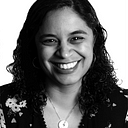From Whence We Came
At dinner last night, my 13-year-old son shared that he and his classmates learned about the “Slave Castles” in Ghana, which held Africans who would become enslaved in the Americas.
He and his classmates have been reading Howard Zinn’s A Young People’s History of the United States as a supporting text for the books they are reading this year in their Humanities class.
I asked my son how he and his classmates responded to hearing about these structures that hold such bloody history and he said it was upsetting and disturbing. He went on to tell me about how the men and women were treated as they awaited their journey, and of those who chose to jump into the ocean instead of living a life of enslavement on foreign shores.
I then told my son that our own enslaved ancestors could very well have been held in one of those castles. His eyes widened. I told him that despite people thinking he is white, he has African ancestors who were enslaved and who also breathed life into him.
He considered this and said, “Verdad. La gente nunca pensaría que yo también soy africano, con este color de piel.” (“True. People would never think that I am also African, with this skin color.”) I told my son that Africa is the cradle of civilization and that all of humanity dawned on the African continent.
These conversations and these lessons (and my son’s schooling) are intentional ways I interrogate the status quo.
My son is presumed to be white but rather than accept his “whiteness” and the lie that his skin color tells the world who he is, to whom he belongs or how he should challenge casteism, my husband and I have chosen to raise him to know his totality, to see himself in Black and brown-skinned people and to know that racist inequity injures us all.
James Baldwin once said, “If you know from whence you came, then there is really no limit to where you can go.”
My son is learning from whence he came.

